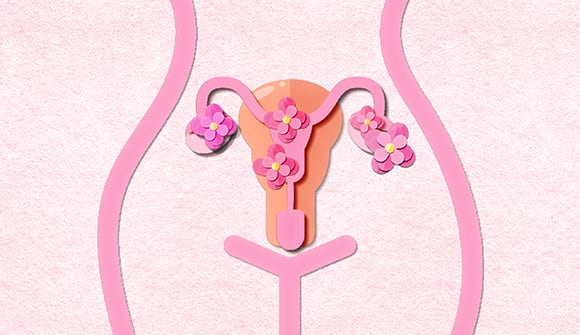10 tips for new parents
What women’s and children’s health experts want first-timers to know.
Article Author: Katie McPherson
Article Date:

It’s time we started talking more openly about “the fourth trimester.” Both Harvard Medical School and The New York Times have written about that 12-week period after delivery, when moms’ bodies are healing, new family routines are being established, and both parents are just trying to keep their newborn alive while being totally sleep deprived themselves.
All these changes and new stressors can put new parents’ mental and emotional well-being at risk, even as they’re overjoyed with their new baby. Women’s and children’s health providers from across Baptist Health and Wolfson Children’s Hospital share their top tips for parents heading into the fourth trimester — what they wish new parents knew, how they stayed sane as new parents themselves, and what they tell patients of their own.
1. Have a birth plan, but prepare for anything. “Be flexible regarding the delivery of your newborn,” said Kendra Gillespie, MD, obstetrician and gynecologist at River City OBGYN, which serves patients at Baptist Health. “Birth plans are excellent guides to direct your decisions related to labor and to facilitate a discussion with your provider and those attending your birth. To maintain a memorable and positive birth experience regardless of what happens, be flexible with your birth plan, because babies do whatever they want, whenever they want. That means deliveries come in many different shapes and forms.”
2. Make time for skin-to-skin contact. “Whether you’re breastfeeding or bottle-feeding, the baby receives benefits from skin-to-skin contact. For all moms and dads, providing skin-to-skin contact assists with bonding, regulating vital signs and keeping baby’s blood sugar stable. I encourage skin-to-skin in the morning before you get baby dressed for the day and in the evening after bath time,” said Lisa Hays, RN, IBCLC, lactation consultant at Baptist Medical Center South.
3. Prioritize your mental health. “As a maternal mental health provider and a mom, I recommend parents have a plan in place to make certain that their own mental health is prioritized,” said Jill Garrett, PsyD, licensed clinical psychologist with Baptist Behavioral Health. Dr. Garrett encourages people to use the acronym NURSE to remind themselves of healthy ways to provide self-care:
Needs, both physical and emotional
Understanding triggers.
Rest and relaxation.
Support.
Exercise.
4. While breastfeeding is natural, it doesn’t always come naturally. “Sometimes the smallest tweak in positioning can make all the difference. Be patient with yourself and your baby — it's natural but not always easy at first. Trust your body and trust your baby,” said Kelly Tucker, RN, BSN, IBCLC, lactation consultant at Baptist Medical Center Jacksonville. (Also, formula feeding can come with challenges too! No matter how you feed your baby, you will find what works for both of you.)
5. Find breastfeeding support if you need it. “Breast milk is digested in 90 minutes, so breastfed babies feed frequently. Cluster feeding is difficult but normal. Surround yourself with support, not criticism,” said Maryann S. Eisemann RN, BSN, IBCLC.
6. Don’t sweat the small stuff. “My No. 1 tip for first-time parents comes from the parent side of me, not necessarily from the physician side: Don’t stress,” said Erika Glas, DO, obstetrician and gynecologist at River City OBGYN, which serves patients at Baptist Health. “Too many parents sweat the small things and drive themselves nuts! ‘Am I doing this exactly right? Did I feed my baby too much? Or too little?’ They also see other moms who seem to have it all together, and by comparison, they feel like a failure. In reality, those moms do not always have it all together behind closed doors. Your new baby will love you. You are his or her whole world. Your baby won’t know what is right any better than you will, so let go of the little things and instead spend more time enjoying these new precious moments.”
7. Focus on yourself and your new addition. “Eliminate the background noise during this special time,” said Amy Greene RN, BSN, IBCLC, lactation consultant at Baptist Medical Center Jacksonville. “Phones, social media, and too many visitors with too many opinions can lead to poor sleep and recovery, limited bonding with baby, and overall feelings of discontent with your new role.”
8. Similarly, toss out your to-do lists. “From my vantage point now, I can see that I was one of those young parents trying to do it all as a mom, wife, career woman, housekeeper, you name it,” said Cynthia Dennis, RN, BSN, Community Nurse Educator at Baptist Health and Wolfson Children’s Hospital. “Yet, I was oblivious to my hurried ways at the time, perhaps because of the demands I felt, or maybe because I just believed I could do it all! So, my advice to new moms is to hold your baby a lot and give him or her your undivided attention as much as possible. Slow down and focus on this new role and wonderful season of your life, and especially on the amazing new life that has been given to your care.”
9. Believe in yourself. “You must know that you can do it. You can handle any situation, no matter what,” said Bethany Atkins, MD, board-certified pediatrician with Baptist Pediatrics and Wolfson Children’s Hospital. “Read books about parenting. I say that you will need at least three books per child to get you through all of the stages of childhood, not to mention adolescence. Ask for help and advice when you need it — even after four years of medical school, three years of residency, and being in private practice as a pediatrician, nothing prepared me totally to be a mom! Try out the advice and if it works, great. If the advice doesn't work or isn't for your family, then believe in yourself to find the better path and move on. I will also add that you are welcome to ignore any or all unsolicited advice without guilt. Believe in yourself that you are the expert of your own child. You've got this!”
10. Know it’ll all work out. “Our children grow and thrive in spite of our ‘errors.’ There is no one right way. Trust yourself; trust your baby,” said Lynne Grinold, RN-BC, BSN, IBCLC, nurse manager of Women’s Services at Baptist Medical Center Nassau.
If you are trying to conceive or pregnant, call 904.202.4HER (4437) to find an OB/GYN you can trust for expert care throughout your pregnancy. And if you're wondering what it's like to deliver in Baptist Health's spacious labor and delivery suites, visit baptistjax.com/baby.
References: The New York Times, Harvard Medical School



